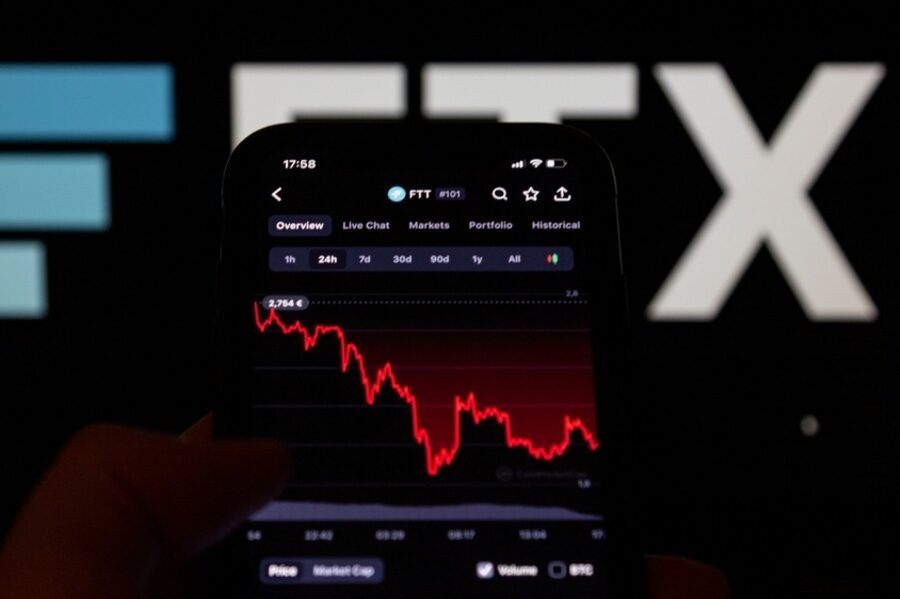The FTX fiasco has kickstarted a shocking turn of events that is sending ripples across the entire crypto industry.
Experts believe the fallout from FTX’s collapse will be substantial and could create a snowball effect when other firms exposed to FTX start failing, taking down other downstream ones, and so on.
Economy Middle East spoke to several experts to help understand the reasons leading to the collapse of FTX and the repercussions the event will have on the crypto sphere.
“FTX is insolvent because it took its customers’ money, gave it away, and accepted its token as collateral,” summarized Babar Khan Javed, Director of Public Affairs at Z2C Limited.
Taking a step back, Saswata Basu, Founder, and CEO of 0Chain said that the entire DeFi process was hijacked by companies like FTX, Celsius, 3AC, and Voyager with a centralized system that was not transparent in what they were doing with the investors’ money.
Under the cover of opacity, these firms took some very questionable decisions promising returns that weren’t deliverable without the crypto economy increasing as a whole, which is a near impossibility amidst the prolonged crypto winter.
“As investors withdrew, it created a panic spiral which resulted in reduced value in assets and further prompting more withdrawal creating a bank run syndrome that affected all investors that had exposed their customer assets to cryptocurrency,” explained Basu.
Ripe for regulation?
Compared to banking and traditional investment instruments, crypto is a relatively new space with no checks and balances or regulations to determine accountability.
Javed is of the opinion that intensive lobbying by the crypto industry has ensured this space is and remains deregulated.
“If we should have learned anything from the crashes of 1929 and 2008, it’s that regulation of financial markets is essential, or else small investors lose, which endangers the entire economy,” Javed underlined.
However, John Lo, Head of Digital Assets at Recharge Capital, doesn’t think regulation will have a substantial impact.
“Time and time again we continue to see the greed that arises from holding user funds revealed during stress tests of centralized platforms,” said Lo, adding “it’s impossible to regulate away greed and this entire series shows the inability to regulate.”
The end of centralization
The recent failures have exposed the fallibility of centralized exchanges.
Basu believes going forward centralized exchanges will need to be more transparent in the reserve assets they hold in order to show proof they can withstand a bank run. He thinks most will also need to offer a non-custodial wallet as an option for their customer in order to inspire confidence and trust.
“Noncustodial DeFi is here to stay,” agrees Lo. “It’s by the far the most robust and transparent solution.”
However, Lo points out another disturbing fallout of FTX’s collapse, with Binance now clearly emerging as the largest centralized exchange. Arguing that the level of centralized consolidation is also room for concern, Lo suggests that Binance’s rising stature has fragmented the market into non-US and US.
Read more: FTX’s token plunges 84% in last two days: Report
“This will present a unique set of challenges and a clear paradigm shift where the US may fall behind in a nascent technology for the first time,” explained Lo. “Cryptocurrency is forming as its own sovereignty and the US has very little to say or participate in it.”
It’s difficult, if not impossible, to estimate the true impact of the collapse of FTX. However, one thing we are certain of is that the crypto landscape will redraw itself over the coming months.
The collapse of FTX might be the final straw that could trigger the ascent of decentralized and autonomous exchanges, though our experts think centralized entities won’t give up with a fight.
“We’re about to witness a David and Goliath moment that will set the stage on how finance, commerce, and culture will look like in the years to come,” asserts Lo. “The jar has been shaken, but this time it’s for all the marbles.”








